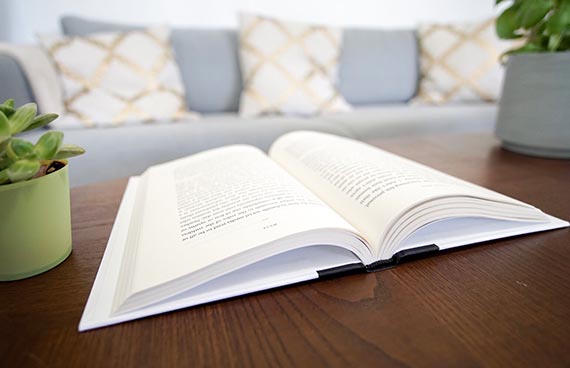On a recent trip to visit my family in Scotland, my brother made a comment that made me think.
He said, “I wish I had asked Dad questions about his war experience. I’m sure he went through a lot over that five years. He probably had stories every bit as interesting as you see in war movies, but I don’t know anything about it.”
Our Dad had a very unusual name. I often wondered what it meant and why he got it. Why did I never ask him?
As I thought about it, I realized we could also have asked our Mother about our family history — but we didn’t. So large chunks of our personal history are lost.
This is one of the most popular — and important — reasons for writing a family memoir. The older generation has knowledge, history, opinions. They have lived lives that affect their descendants — you and me — and they deserve to be given a voice. Future generations deserve to know if their grandparent was a war hero, or even just a hero to their family. And the grandparents themselves deserve it to be known.
I recently contracted to write the memoir of a lady just approaching her 90th birthday. She had apparently made it known to her family that there were lots of interesting things about her and her life that they didn’t know, and she was interested in putting them down in writing as a kind of legacy to them. Her daughter hired me to ghostwrite the book. As we recorded our conversations, I’ve been fascinated by this lovely lady and her life story — and her philosophy of life. I’m sure this book will be the best 90th birthday present she could have received.
Here are some things to keep in mind if you’re thinking of helping an elderly relative do a memoir:
The best way to get the stories out of the person’s mind is to ask questions and record the answers. In other words, interview them. But for goodness sake don’t make it feel like a formal interview. Much better to do it in the comfort of their own home, maybe over a cup of tea or coffee, and make the whole thing informal and casual.
If the interview is a family member, this will come naturally as it will just be a chat with Mom or Dad or Gran or Grandad. If you feel you need professional help, hire a ghostwriter who is experienced in memoir. They will know how to make the person feel not only comfortable, but fascinating and interesting. Because I am an experienced interviewer, I know how to ask questions to dig deeper into a subject or uncover something the person may have forgotten. That makes for a richer memoir.
Add visuals if possible. We all love to look at the photos of our lives, so ask the person in advance to dig out their favourites. Use them as a way to flavour the interview, and put them in the book to flesh out and illustrate the stories.
With an elderly person, don’t assume you can do as much interviewing as you might with a business book, for example. Watch for signals that the person is getting tired, and take a break or even stop and schedule the next session for another day.
Finally, the voices of elderly people can be frail, or at least very quiet. Set up your recording to pick up the best sound and make sure you do regular sound checks. Or you might find yourself paying your transcription service a surcharge for difficult recordings.
If this is something you might like to do for an elderly relative, do contact me at helen@mhwilkiebooks.com and let’s set up a free consultation. Whether you hire me for the work or not, I will happily answer any questions you might have about this worthwhile and very fulfilling project.
